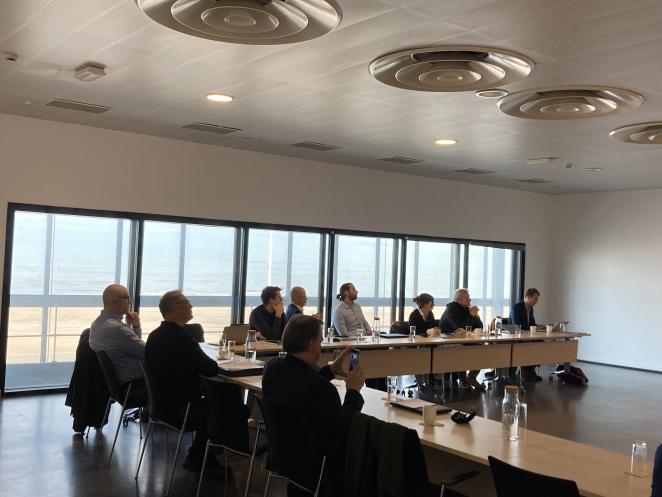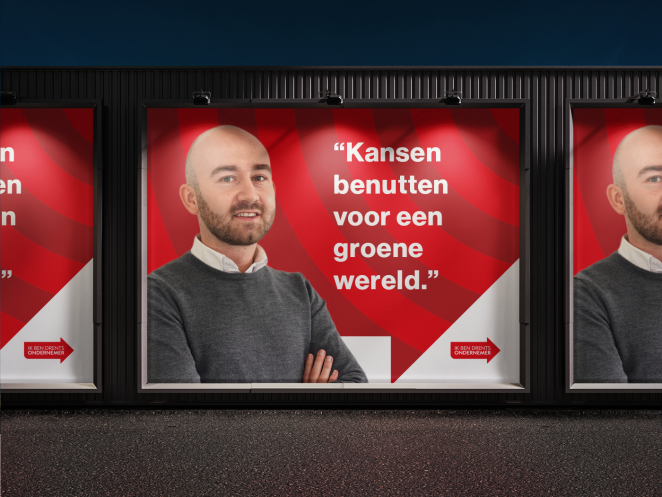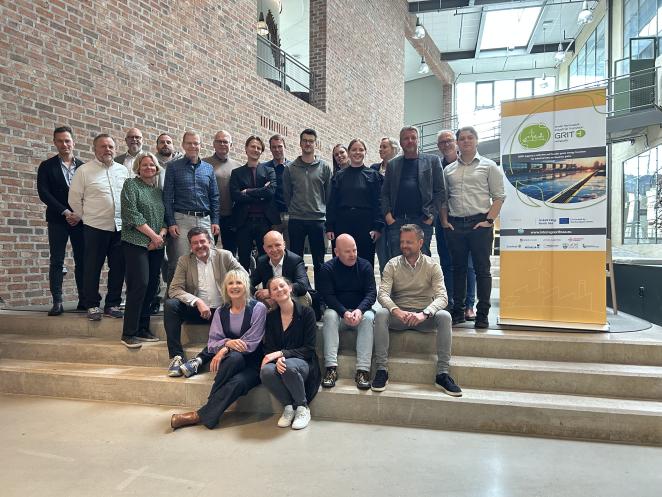During the first half of 2025, GRITH partners have shown that there is an ever-growing movement towards cleaner energy on industrial sites and business parks across the North Sea region. As mentioned in the latest project progress report, this energy transition starts locally through collaboration with companies, municipalities, and knowledge institutions, where the consortium is turning policies into projects and challenges into opportunities.
During this period, GRITH brought many new organisations into the partnership, including sectoral agencies, SMEs, public authorities, and large enterprises across six countries. These new participants bring practical insights and expand GRITH’s transnational learning ecosystem.

Local insights shape European policy
While local experience continues to shape the broader policy dialogue, insights from participating regions feeds directly into the European Commission’s Clean Industrial Deal, with the Commission acknowledging the project’s contributions as “inspiring and relevant.”
At the same time, GRITH partners are professionalising how they “sell” the energy transition to businesses through borrowing techniques from industry to communicate benefits and motivate participation.
- Drenthe expanded its Community of Practice on energy hubs, connecting SMEs with renewable initiatives.
- Emmen hosted the New Emmergy Congress and revitalised its Industry Table for collaboration on energy strategies.
- Wesermarsch reinforced the H2Marsch Network, exploring hydrogen solutions under changing national policy.
- Vejle initiated a national alliance for energy communities, while Pôlénergie in France launched Polaris – a tool guiding industries towards practical decarbonisation pathways.
These efforts collectively strengthened GRITH’s role as a bridge between policy frameworks and practical implementation.

IBDO: "Seizing opportunities for a green world"
Business models & governance
Partners continued to refine the Next Generation Energy Business Model, supporting industrial sites in assessing their renewable potential and financial feasibility.
Concrete outcomes include:
- Four pilot business models: direct power exchange between sites, off-site renewable sourcing, the Danish renewable model, and Power Purchase Agreements for price stability.
- Legal frameworks for group contracting, on-site collaboration, and national regulatory adjustments in the Netherlands and Denmark.
- A governance framework that helps sites organize cooperation and accountability — shared widely among partners.
These models now form the foundation for local energy systems that are technically sound, legally robust, and financially viable.
Preparations are advancing for on-site renewable energy systems in Emmen, Mechelen, Borås, and Drenthe. In Borås, the system links to municipal waste incineration, while in Drenthe a new collaboration with insurance firm Univé is exploring innovative solar energy solutions for business parks.

GRITH partners at the Textile Fashion Centre in Boras
Movement with momentum
From Energy SWOT workshops to awareness campaigns in Emmen, Emsland, Mechelen, and Wesermarsch, the GRITH movement is increasing momentum,combining technical innovation, governance reform, and community engagement to show that industrial decarbonisation succeeds when local actors take the lead, supported by European cooperation.
Curious about project results?Explore the toolbox!
